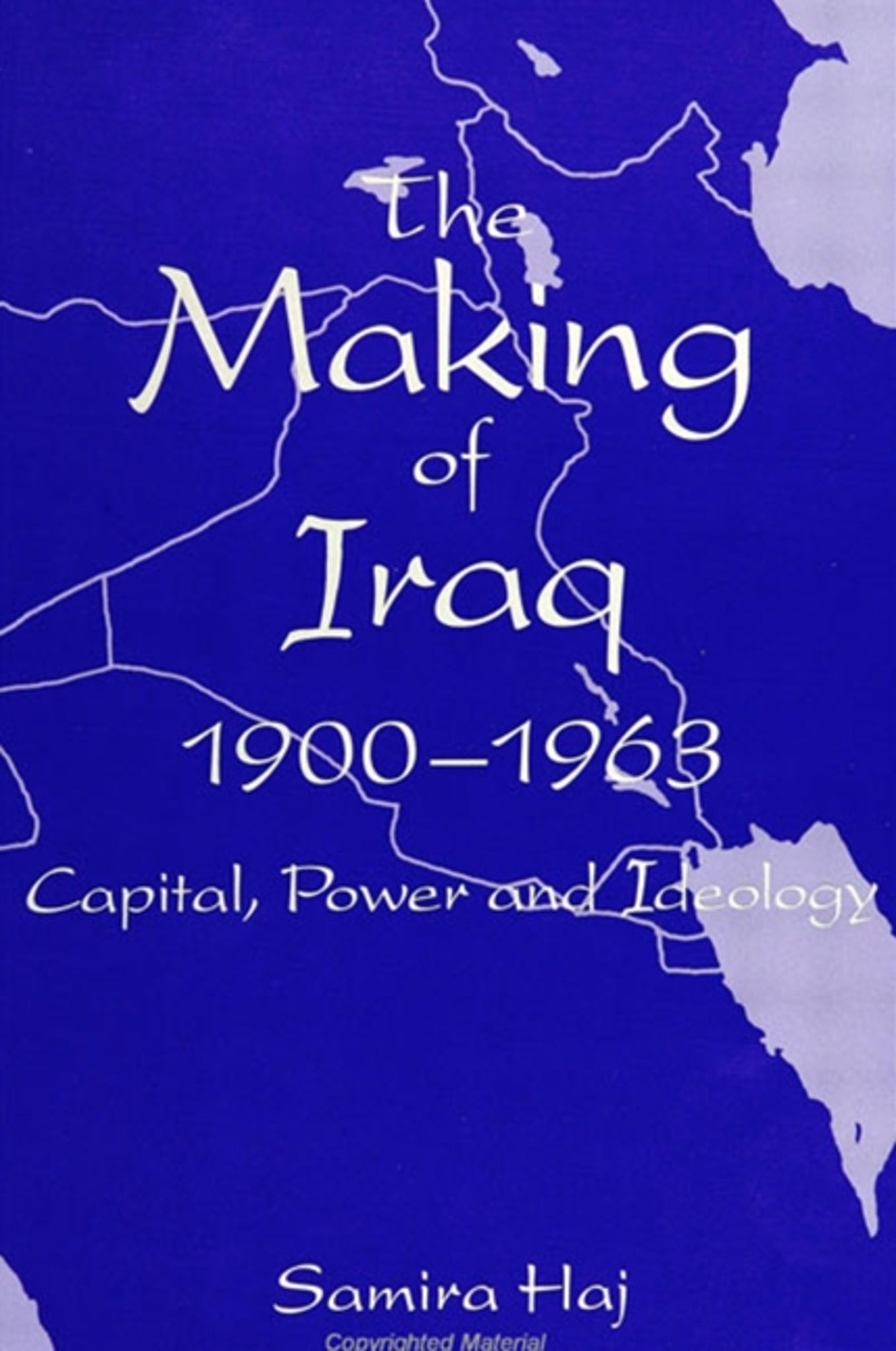We're sorry. An error has occurred
Please cancel or retry.
The Making of Iraq, 1900-1963

Some error occured while loading the Quick View. Please close the Quick View and try reloading the page.
Couldn't load pickup availability
- Format:
-
27 February 1997

This book's innovative approach makes it an important intervention into the field of modern Iraqi and Arab history. Samira Haj's discussion of the factors that led to, and paradoxically caused the failure of, the 1958 revolution in Iraq forms the framework for her critique of conventional Eurocentric notions of nationalism, revolution, and modernity. Haj explains the pervasive violence of Iraq's political scene not by invoking ageless images of sectarian strife and irrational bloodlust but by showing that the violent political battles of the 1950s and 1960s were the result of fundamental changes in the system of ownership and agricultural production during the nineteenth century. Furthermore, she shows that the national government's smashing of the popular movement and the dismantling of its various grassroots organizations in 1963 signified the beginning of the end of participatory politics in Iraq.


"Theoretically sophisticated, analytically sound, cogently argued, and lucidly written, Haj's book makes the history and politics of Iraq from 1932 to 1958 much clearer than any previous work. Its usefulness has been further increased by the Gulf War and its continuing aftermath. The potboilers written in the wake of that war have added to the confusion, much of which is cleared up by Haj's work. The book is solidly based and researched in the essential Arab sources." — Robert Olson, University of Kentucky
"This book is extremely interesting to read. Haj covers two significant topics—the Iraqi revolution and the role of the agrarian problem in that revolution. Her book is rich both in data and interpretation for showing the complexities and regional diversity of the agrarian problem. It is also excellent in relating this to the social structure." — Ervand Abrahamian, Baruch College, City University of New York
"Samira Haj contributes to our understanding of the modern history of Iraq by addressing a number of key questions. She examines socioeconomic transformations and the emergence of new classes and political alliances, the role of oil in perpetuating both class divisions and underdevelopment, and the revolution of 1958 and its eventual defeat. Above all, she highlights the agrarian question as the site of contestation between the contending social forces." — Salaam Yousif, California State University, San Bernardino
Acknowledgments
Introduction
PART I. The Formation of Capital
1. Land, Power, and Commercialization
2. Peasant Economy and Merchant Capital
3. Industry
PART II. The Nation-State; Politics and Revolution
4. State Crisis and the End of the Oligarchic Monarchy
5. The Revolution of 1958 and Its Defeat
PART III. Epilogue
Epilogue
Notes
Glossary
Bibliography
Index



